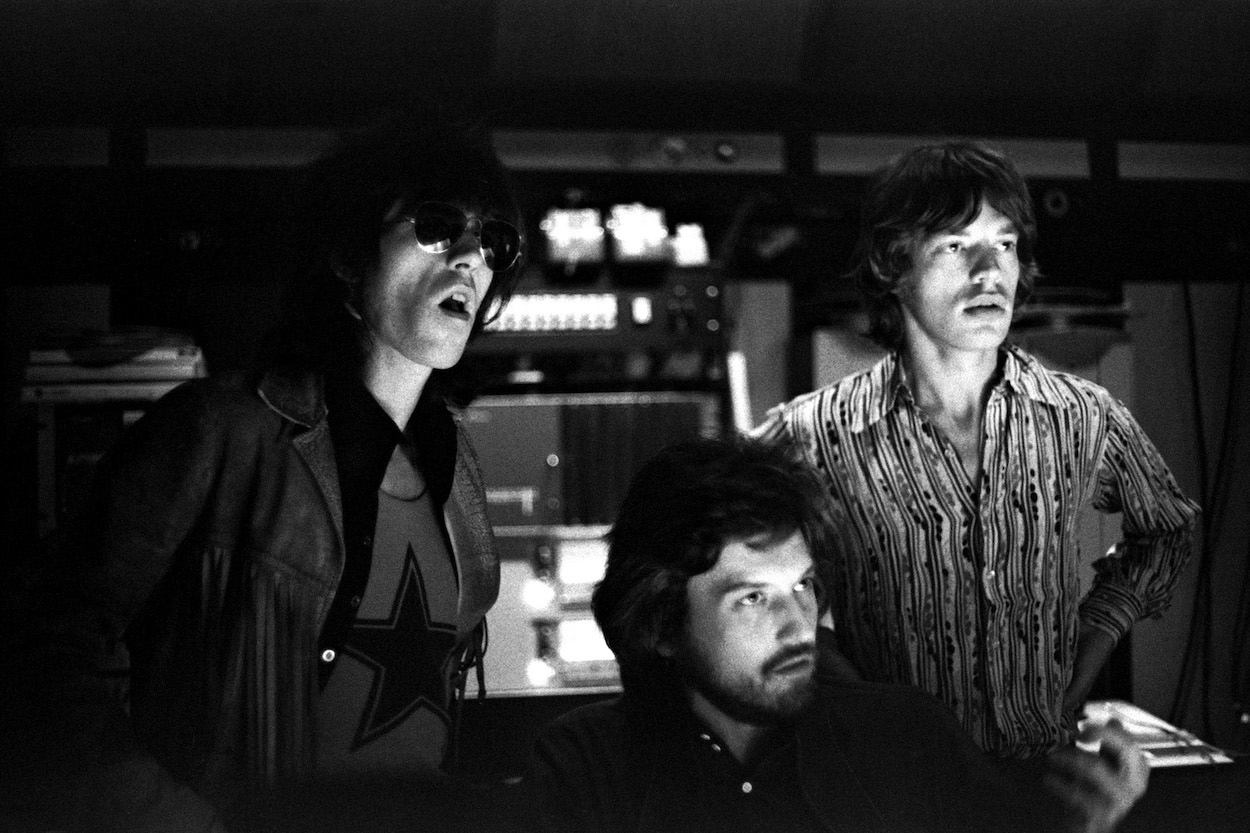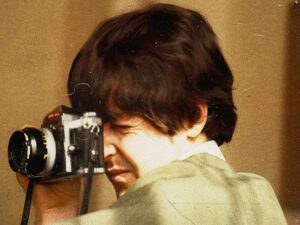Keith Richards has never hesitated to call out music he doesn’t like. That includes tunes by The Rolling Stones. The loose-lipped guitarist freely criticized the band’s music, going as far as to call one Stones album garbage. So for Richards to admit Jimmy Miller was the key to The Rolling Stones’ best records is no faint praise.
Keith Richards said producer Jimmy Miller was a key figure in making The Rolling Stones’ ‘best records’
The Rolling Stones spent their early years as a cover band as Richards and singer Mick Jagger developed as songwriters. The pair gave away a top-10 song before their band had a hit, but the Stones eventually became hitmakers with Jagger and Richards leading the way.
Once they found their footing, the Stones had a run of success that would be the envy of all but a few bands. Starting in 1968, they released a string of hit records that became some of their most successful albums. It might have been Jagger’s and Richards’ maturity that led to better results on the charts. But Richards’ admitted Miller’s presence was vital to making what he said were The Rolling Stones’ best albums.
While discussing “Street Fighting Man” with Anatomy of a Song author Marc Myers, Richards said Miller had a special touch dealing with the Stones at their creative peak
“Street Fighting Man” became one of the most enduring songs from the 1968 album Beggars Banquet. That was the first Stones record with Miller as producer. It didn’t hit No. 1 in England (peaked at No. 3) or the United States (No. 5), but it kickstarted an incredible run of success.
The Stones followed Beggars Banquet with the seminal Let It Bleed. A pair of Billboard No. 1 albums — Sticky Fingers and Exile on Main St. — came next, followed by the underrated Goats Head Soup. Miller produced all of them.
When Richards said The Rolling Stones made their best music with Miller, it wasn’t just tossed-off praise. And it wasn’t merely the guitarist’s opinion. Miller at the controls while the Stones’ made the albums that constituted their creative peak. He knew how to handle the band and channel their energy, Richards said. It’s hard to argue against the results.
Miller directly contributed to several of the biggest Rolling Stones songs
Miller wasn’t just the producer of the best Rolling Stones records. Like Beatles producer George Martin, he also played on some of the biggest songs of their career.
When Charlie Watts couldn’t find the groove on “You Can’t Always Get What You Want,” Miller got behind the kit and laid down a beat. Watts liked it so much that he asked the producer to play on the song (per Rolling Stone). Miller also played drums and percussion on “Happy,” “Shine a Light,” the “Tumbling Dice” outro, “Gimme Shelter,” “Monkey Man,” and “Can’t You Hear Me Knocking.”
Years before Christopher Walken’s record producer character needed more cowbell in a Saturday Night Live skit, Miller played two cowbells on “Honkey Tonk Women.” The song needed four years to reach the charts, but it eventually became one of the Stones’ biggest hits.
His playing showed up on a few hit songs, but Miller’s role as a producer was much more essential to creating The Rolling Stones’ best records, according to Richards.



